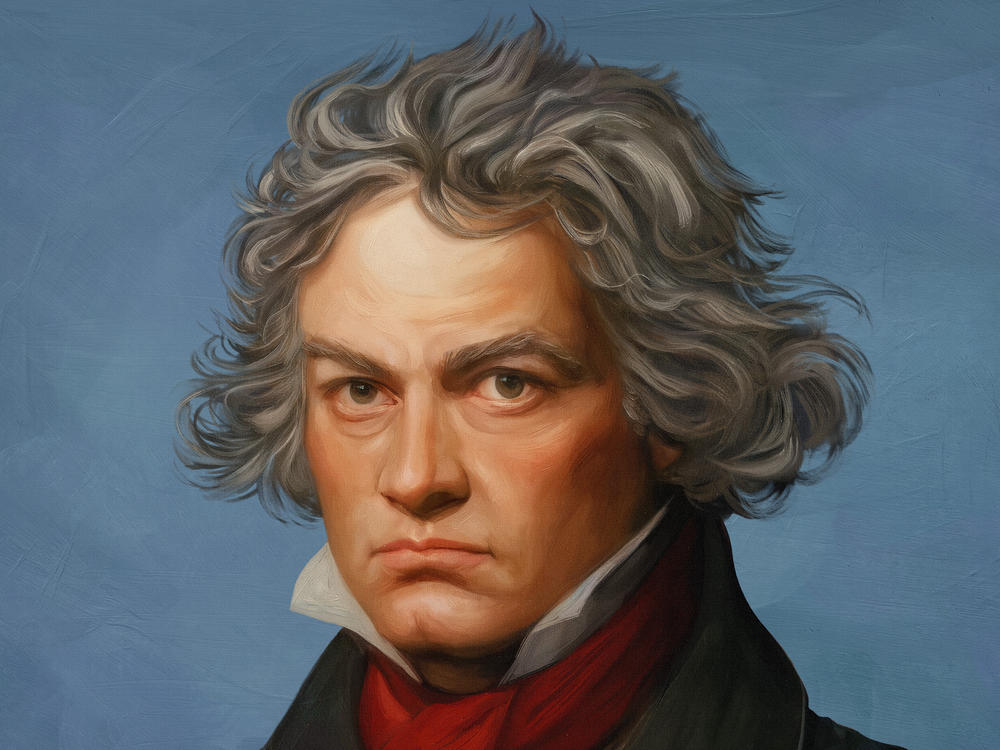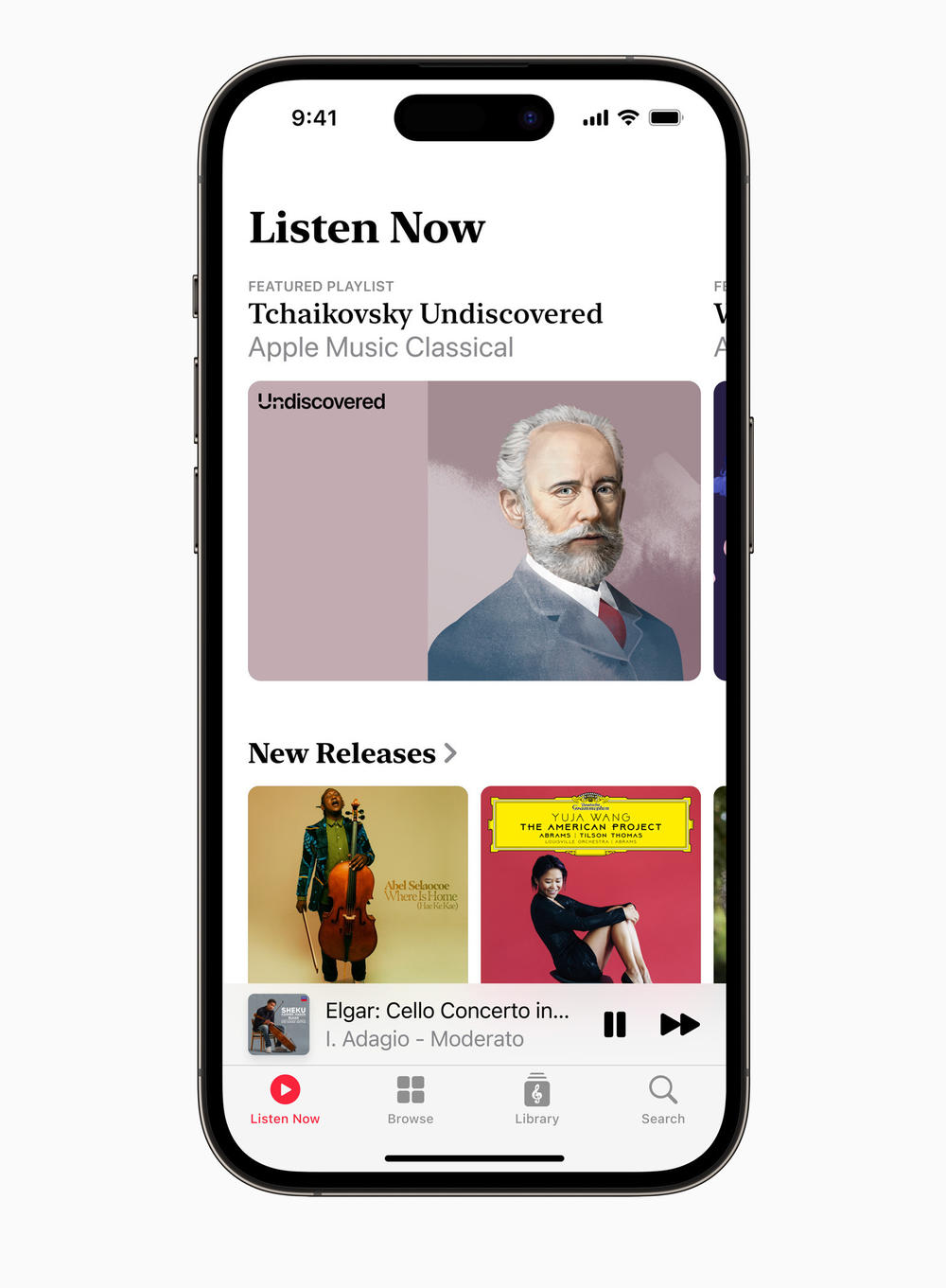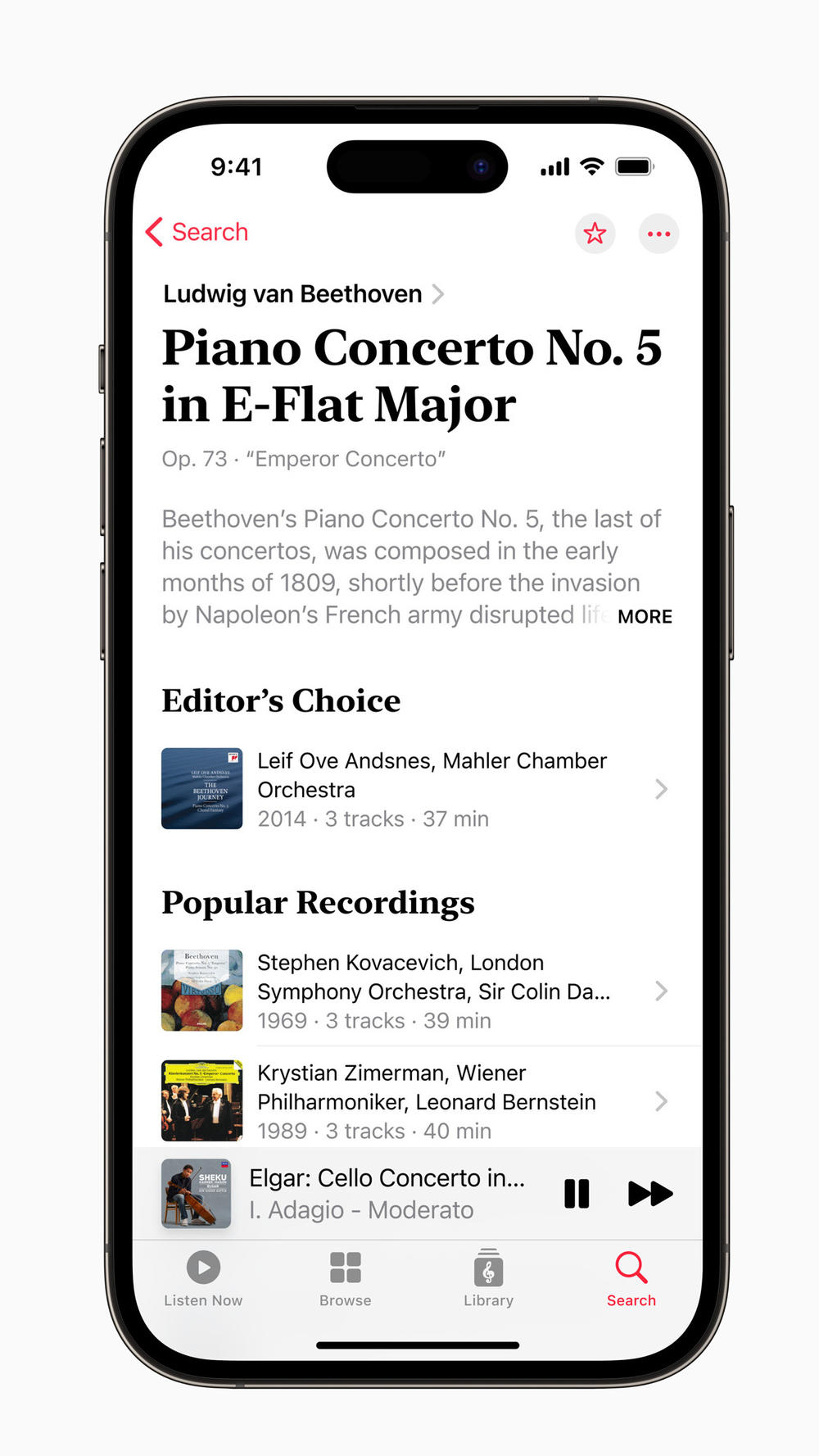Section Branding
Header Content
Apple Music Classical aims to reach music lovers the streaming revolution left behind
Primary Content
For years, classical music fans have been left behind in the streaming revolution. Finding particular works and recordings has been hit or miss on the major platforms, which were basically built to search for an artist's name and a song title. Apple Music Classical, launched last month, is the latest streaming service to take a serious swing at the likes of Bach, Beethoven and Bartók.
For years, I've been complaining quite publicly about how streaming services have blundered when it comes to reaching audiences interested in classical music recordings. Why have they stumbled? For a couple of reasons. Firstly, the metadata for classical music — including the name of a piece of music, the individual movements or sections of that piece, the composer, the various performers involved, and so forth — is inherently more complicated than it is for pop music.
Secondly, classical works often span several tracks, not self-contained within one "song." By contrast, most streaming sites assume you want to listen to one track and then move on to something new.
For today's listeners, a world of great music is, at least in theory, no more than a click away, as pianist and composer Ethan Iverson recently wrote. But recorded music functionally ceases to exist if you can't find it.
Historically, most popular streaming services have ignored those fundamental truths, either for lack of a market base (or so I've been told) or out of disinterest (same). In that breach, several classical specialty sites sprang up, with varying degrees of success. Before I joined NPR in 2011, I was the founding editor of one of those services, which tried — and failed — to reach classical music fans.
Two years ago, Apple bought just such a company, called Primephonic — and built their new service on Primephonic's bones. Jonathan Gruber heads classical for Apple Music. He says, "Fundamentally, the thing about this app is that it's trying to do something that has not been done adequately before and do it really well, which is deliver an excellent customer experience, listening experience for classical music lovers. It's made for classical music lovers by classical music lovers." (It's also free — but only if you already have a subscription to Apple Music.)
The last time I wrote at length about classical music metadata and streaming services was back in 2015 — an eon ago, in technical terms. Some services have improved significantly, while others have not.
For one example: Say I want to find a great recording of Beethoven's grand and glorious Symphony No. 9. On any streaming platform, I get back hundreds — and sometimes thousands — of results. The first match I get on Spotify is conductor Herbert von Karajan's 1984 recording with the Berlin Philharmonic. (Not bad, considering that Karajan recorded the Ninth Symphony four times over his career.) If I were a newcomer to classical music, I wouldn't get much information about this recording, nor would I have much in the way of guided pathways to aid further exploration.
I don't fare nearly so well on YouTube. After I search "Beethoven Symphony 9," the first hit I get is not a symphony, not a piece for orchestra, and not even music by Beethoven. Instead, I get a recording of Chopin's Nocturne Op. 9 No. 2.
In my exploration of Apple Music Classical, the app usually gave me the results I sought on the first search attempt. For popular pieces of music, such as Beethoven's Piano Concerto No. 5 "Emperor" — for which there are 817 (!) recordings available — the app provides a brief text introduction to the work, a human curator-recommended "Editor's Choice" recording, several "popular recordings" of the piece, and then a list of some related works, including recordings of other Beethoven works for piano, as well as suggestions of other pieces by other composers (Mozart, Mendelssohn, Brahms, Saint-Saens) that might appeal as well.
Gruber says that as of launch, Apple has more classical music available than any other streaming service: "We have a database which has 20,000 composers, more than 100,000 unique works, 300,000 movements, 5 million tracks, 50 million data points in order to make this happen," he notes. (We reached out repeatedly to Spotify to ask for comparable statistics but did not receive any response).
Financially speaking, it's unclear why Apple felt this was a good time to create a classical music service. Several years ago, classical music sales accounted for about 3% of the overall music market in the U.S. According to a 2022 year-end report from the firm Luminate (formerly Nielsen Music), classical now hovers at about 1% of total music consumption in this country.
According to Gruber, Apple's research has found that far from being music snobs, classical fans actually listen to many more kinds of music than listeners to other music genres. "What we found," he says, "is that classical customers are not sitting in an elite corner somewhere. They're actually the biggest music fans there are. They're the ones who listen to the widest variety of genres, way above the average of your average listener of music."
Apple Music Classical is not perfect. The much-vaunted metadata listing soloists and other performers are sometimes missing. For example, when I looked up the Nonesuch recording of John Adams' opera Nixon in China, starring James Maddalena as the former president, Apple Music Classical had no metadata on any of the singers. Instead, it lists the conductor (Edo de Waart), orchestra (Orchestra of St. Luke's), and album producer. Moreover, it gives an incorrect release date for the album (1995 rather than the correct 1988). A service is only as good as its metadata.
Moreover, if you use an Android phone, you're still out of luck — at least for now — and Apple Music Classical isn't available on a desktop. As of launch, Apple's curated playlists tilt much more toward Classical 101 than deep-dive delights, and there are no liner notes or libretti available.
Perhaps most pressingly, Apple Classical is a standalone experience — disconnected from the rest of Apple Music. So it's hard for fans who generally listen to other genres to fall down any classical rabbit holes.
In the meantime, though, several prominent venues and ensembles seem to be betting on Apple Classical. The service promises exclusive content from Carnegie Hall, the Berlin Philharmonic, the Metropolitan Opera and the London Symphony Orchestra, among others. (Over the past decade or so, several of these prestigious ensembles and organizations have experimented with their own self-contained platforms and streaming sites, but it's unclear if they ever reached some kind of critical audience mass).
Can Apple succeed with classical music fans when so many other services have failed? That's still an open question. But at least one of the biggest players in streaming is finally paying attention.
Copyright 2023 NPR. To see more, visit https://www.npr.org.



